This is what I call pure genius. Why didn’t I think of this when I was staying awake with coffee and energy drinks?
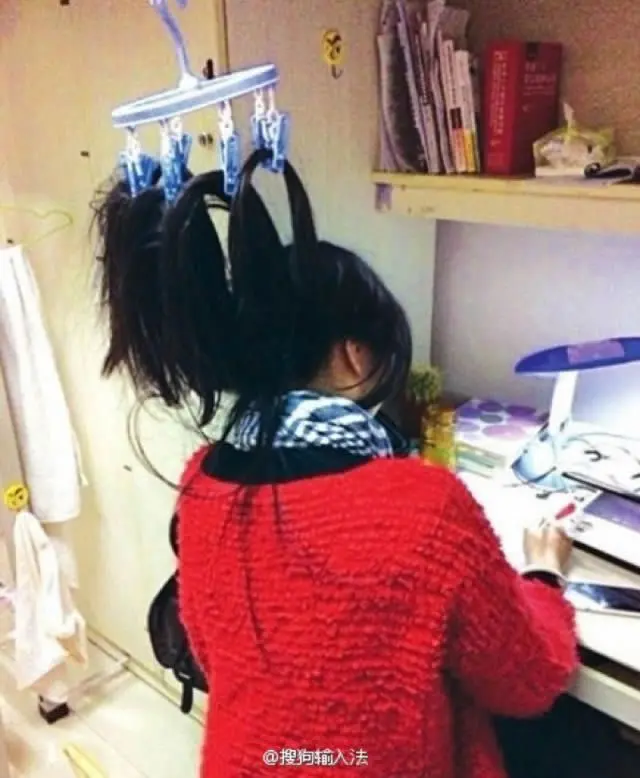
As you can see in the following photos, these Chinese university students had no better idea than to tie their hair to the ceiling using all kinds of fastening elements, even their clothes. Every time they start dozing, the force of gravity does its thing and gives them a hair pull, which ensures they stay awake.
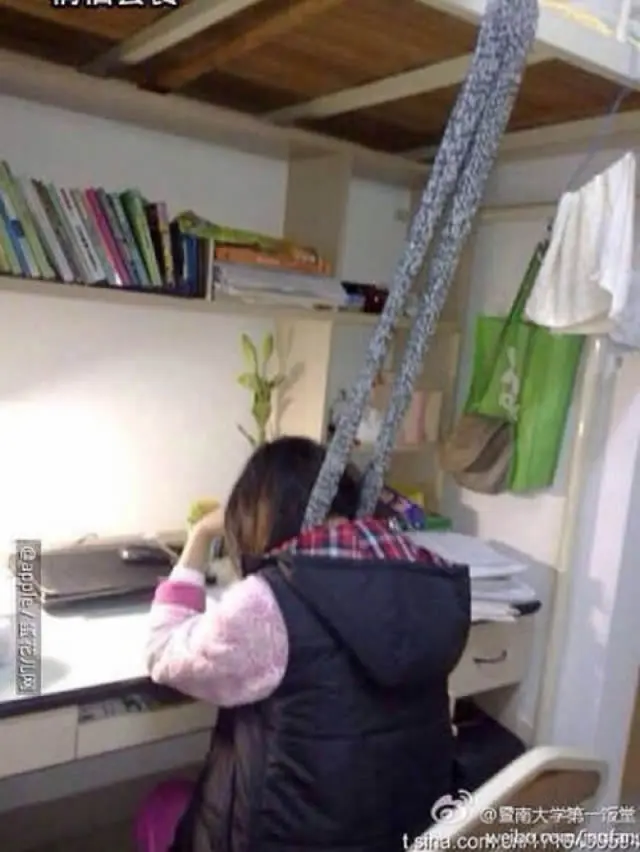
The technique became popular after two students from Fujian University of Agriculture and Forestry, in Fujian province, uploaded their personal photos to the social network Weibo. Chen Tang, 20, and his roommate Huang Lu, 21, had to climb a gigantic mountain of studios and needed a quick fix to fight the urge to “a coyotito.”
They had tried traditional methods that included caffeine, push-ups or turning the air conditioning to maximum, but none of that worked. That’s when they decided to look for a solution in the history books. Chen and Huang read about two famous Chinese scholars who practiced extreme methods to stay alert.
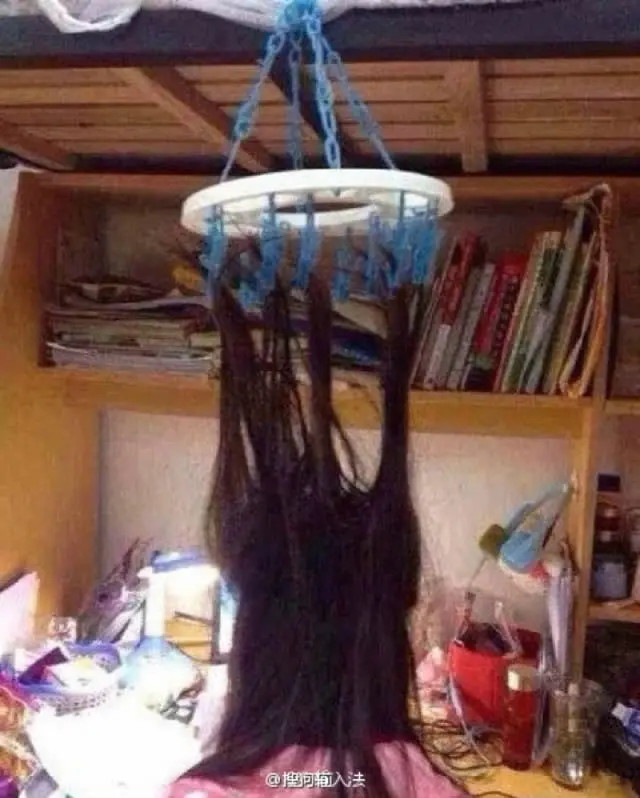
In some of them someone poked them with needles every time they began to feel drowsy, while another method indicated holding on to the ceiling joist by their hair to be thrown away whenever they hesitated. Chen saw potential in the second method and decided to give it a try.
“Chen was so eager to succeed that she decided to make the attempt to hold on to her hair, as you can see, her hair was more than enough,” said Huang, who posted the photos online.
“Since we didn’t have a beam in our bedroom, he used the clothes dryer and claimed it worked great.”
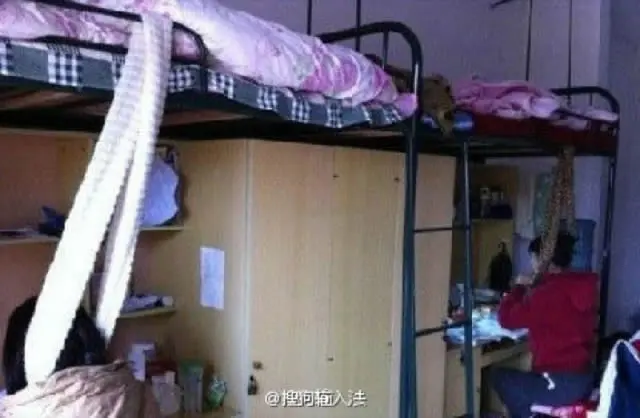
Chen says the little trick helped him clear his mind. And he plans to use it more often in the future.
“The preparation is boring, but the practice of holding the hair in place becomes interesting and I really felt much more energetic when it came to studying,” she said.
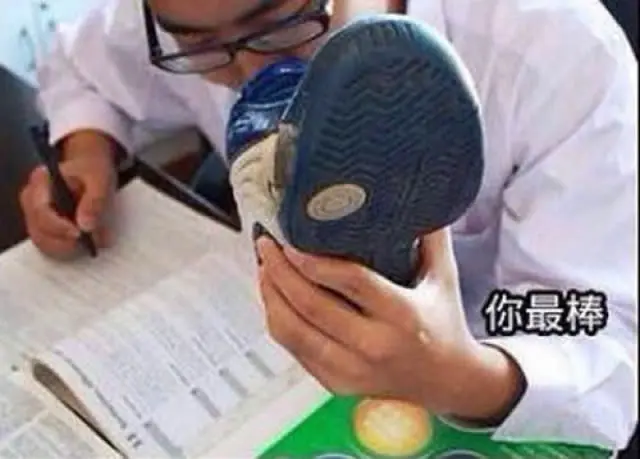
Interestingly, after Huang posted the photographs, the technique of pinning her hair seems to have gone viral. The social network Weibo is now filled with photographs of Chinese students copying the same technique. Some of them use clothespins and scarves.
In more extreme cases, we can see a girl with a rope tied around her neck, and there’s even a disgusting guy who smells dirty shoes to stay awake.
Behind the scenes
Far from the comical nature of this case, the promotion of competitiveness among Chinese university students is ruining the psychological health of thousands of young people, if not eventually leading them to take their own lives. Academic pressure seems to have become unbearable for many students, evidenced by the rising rates of suicides and even murders among classmates. According to Wikipedia, the most lethal weapon for eliminating study rivals is thallium poisoning.
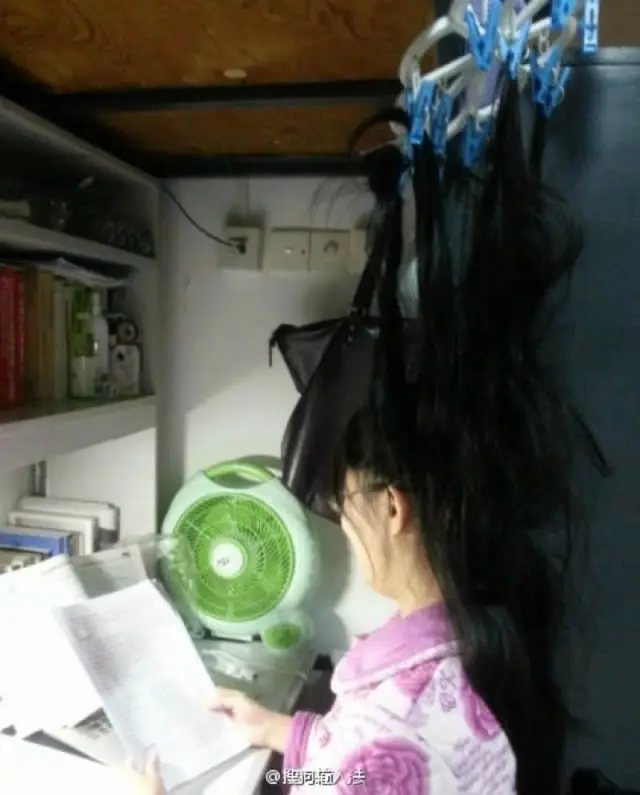
The educational reform initiated in the 1980s aims to reorient higher education to a capitalist logic, and the demands of the market have intensified in recent times. The maelstrom of modernization and optimization of the performance of production structures ended up impacting university programs, a clear example of the effort made by the Chinese in their attempt to become the world’s first hegemonic power (they are not far away from this and some experts say that they will reach that title in 2017). The students are very well prepared, but not all of them are able to assimilate the fierce competition in a country whose moral and cultural values clash head-on with these requirements.
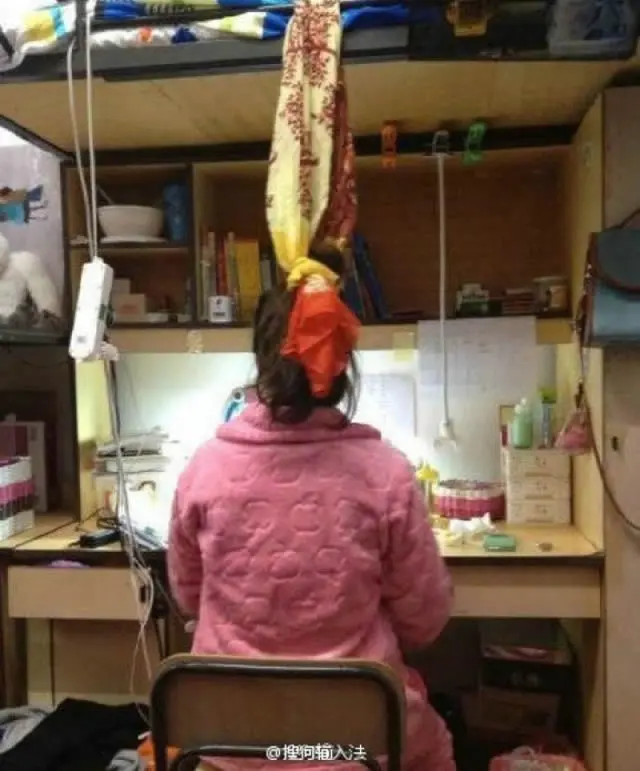
It turns out that this impact produced among students is due to the leap without any transition from the secondary education system, based on an ethical and moral model, to the university system, based on the exploration and development of talent without limits, to this we add the overcrowding of the campus as a main cause of unbearable coexistence among the future “geniuses” of the regime.
«Only the best survive” and the increase in the university population further complicates the impossible outlook for some students who, in most cases, spend the entire academic year locked up on campus, without even being able to visit their families. A situation that has led many critics to compare Chinese university campuses to high-performance sports centers.
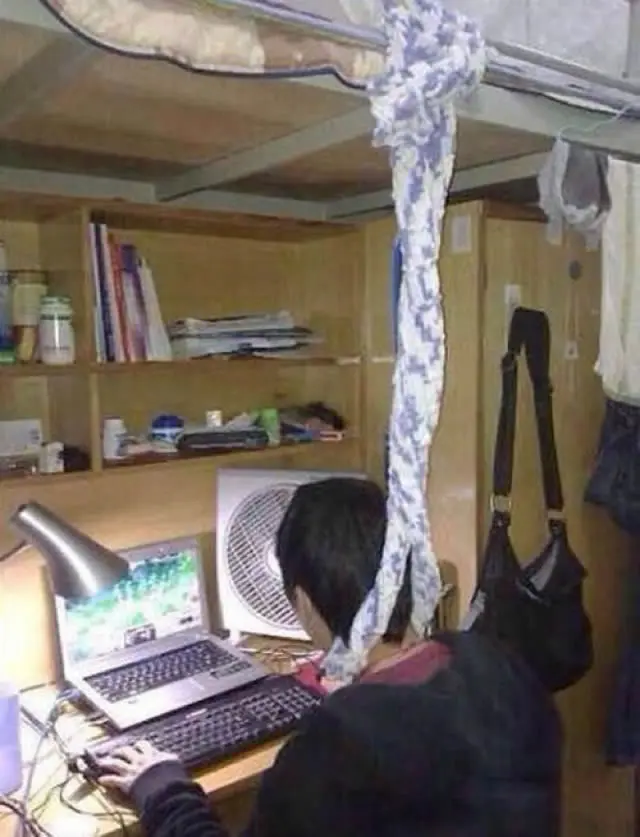
Cases of thallium poisoning are numerous, in April last year alone 3 deaths were recorded, of which classmates were the main suspects. The crimes have diversified to the point of sounding alarm bells among professors who are beginning to question teaching methods.
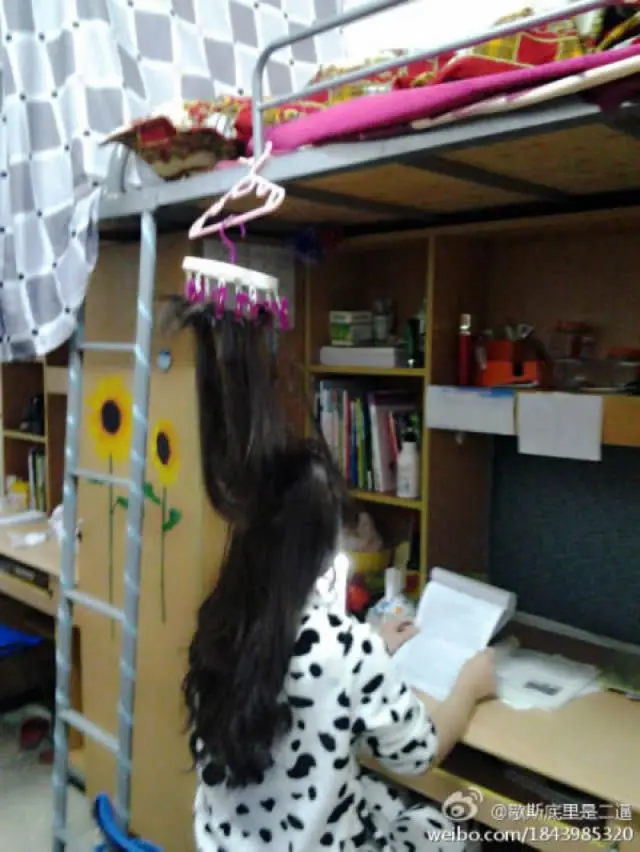
University is practically the only way to move up in the rigid society of the Asian country, which further increases the pressure on students. In such a context, academic Darwinism becomes a source of cruelty and callousness.
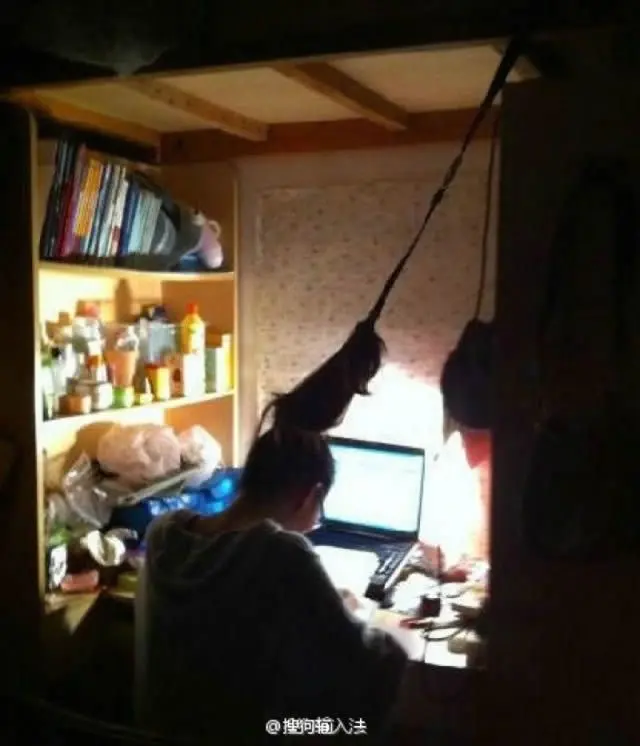
In the meantime, Chinese people will continue to hang by their hair to avoid falling asleep while studying.



Comments